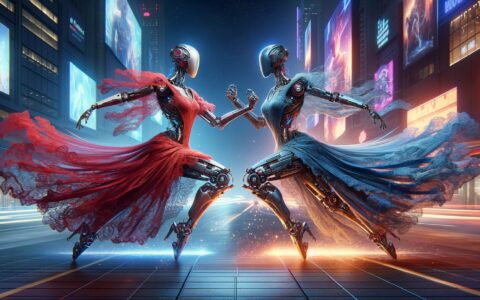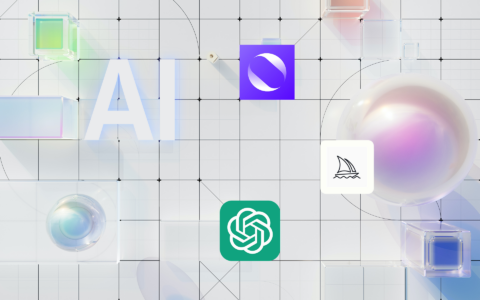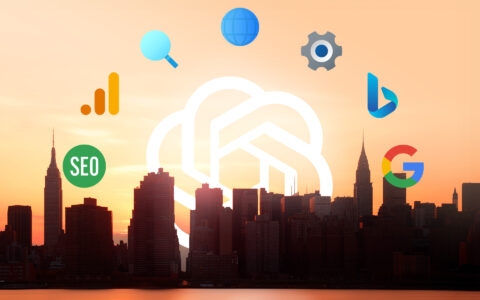The Future of Work: How Automation and Artificial Intelligence Are Changing the Job Market
The Advancement in Automation and Artificial Intelligence have stirred the balance of Jobs for the future. Read this detailed post and learn how.
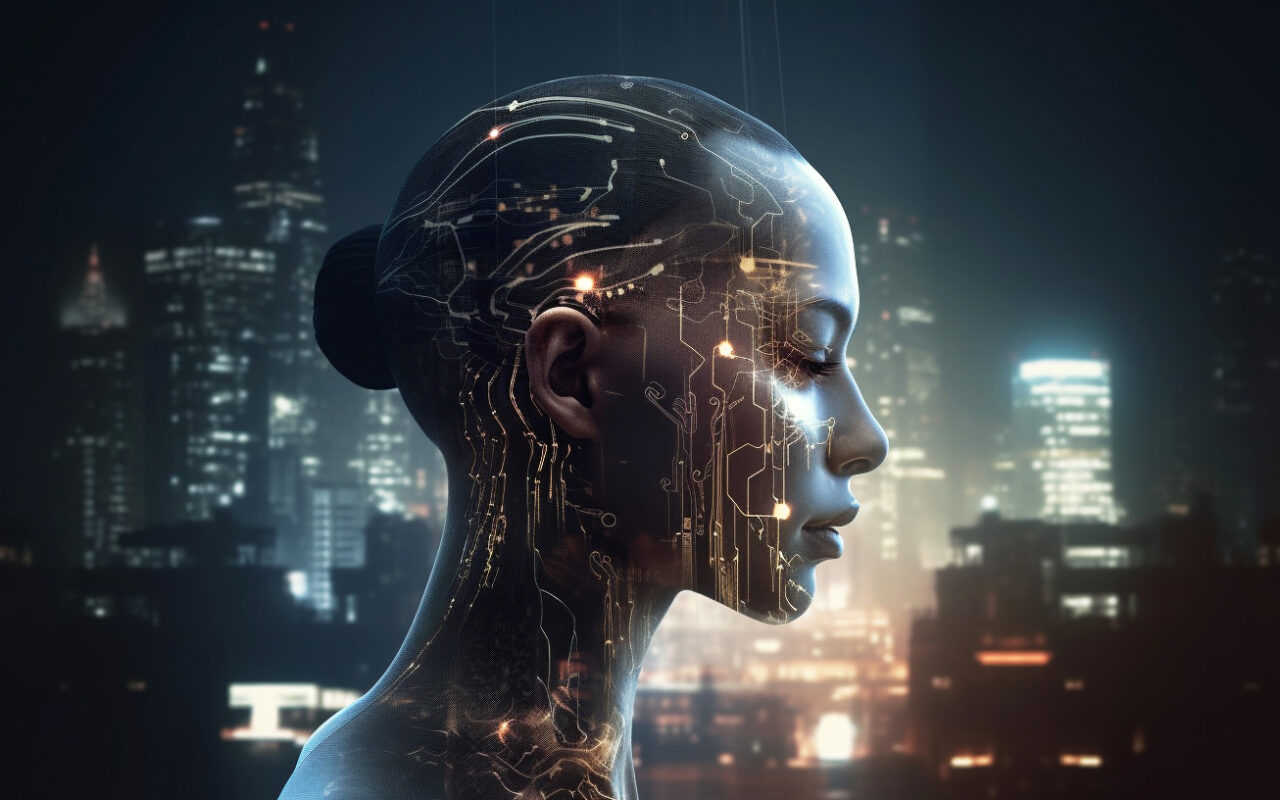
Well, let’s start the debate on the Future of Work. Machines can perform actions hundreds or thousands of times faster than normal humans. This sounds cool, as productivity is increasing at a tremendous rate. However, this is not only increasing the rates of productivity but also of unemployment.
This exact issue has been surfacing on the internet a lot recently. If you have any idea about ChatGPT, you'll know that it's an AI-powered chatbot designed to simulate human-like conversations. And that’s not even a fraction of what it can do.
This post will show how AI advances will affect the future job market.
However, consumers' worries about the ethical ramifications of AI applications are also growing along with this increase. Significantly, 70% of customers are concerned about artificial intelligence being used in product descriptions, and 60% are concerned about evaluations that are created by AI.
Moreover, a noteworthy 77% of people express concern regarding the possibility that AI may result in job displacement. These figures emphasize how critical it is to resolve these issues and guarantee ethical AI development in order to foster confidence and optimize artificial intelligence's advantages.
Find more interesting statistics here.
Automation and Artificial Intelligence
Automation refers to using technology to perform tasks that humans performed before. This automation includes using physical machines, such as robots, and software programs that automate tasks like data entry and analysis.
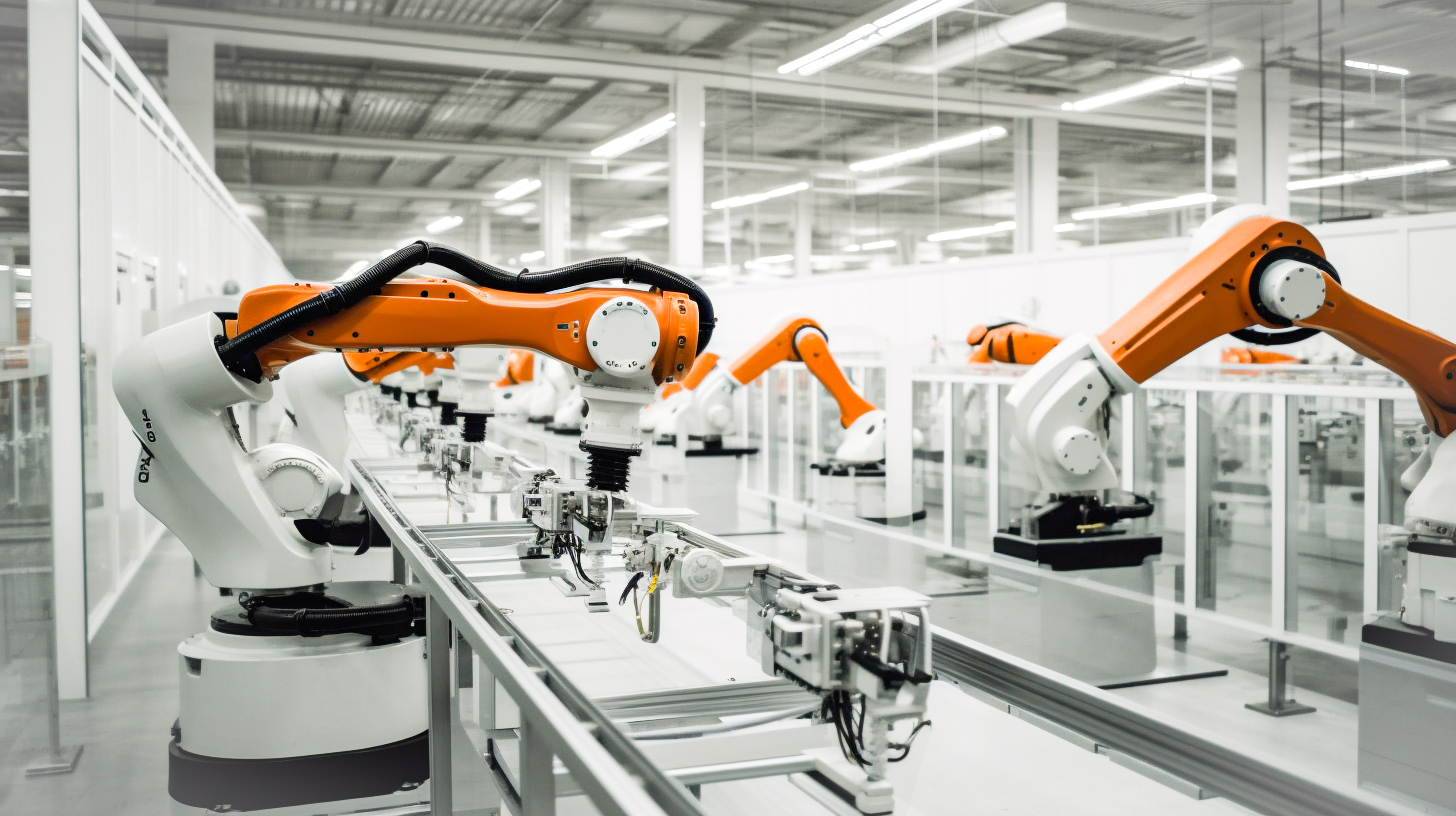 Production has been increasingly automated in recent decades. What changes can we expect in the future with the growth of AI?
Production has been increasingly automated in recent decades. What changes can we expect in the future with the growth of AI?
In contrast, AI is the ability of machines to perform tasks that would typically require human intelligence. Like understanding speech or making decisions based on complex data. AI uses algorithms and machine learning, which help computers learn from data and enhance their performance with time.
One can even say that Artificial Intelligence is indeed a compound effect.
Recent Advancements in AI and Automation
For the last twenty years, discussions about the future of work have often focused on Automation and AI. Yet, the past few years have been bamboozling for AI and the Automation Industry. Big breaks like ChatGPT and MidJourney have taken the world by storm. Well, saying that they took the world by storm is, in itself, an understatement.
 Main image for our recent article generated by Midjourney.
Main image for our recent article generated by Midjourney.
But that's not all. The 500 times better version of ChatGPT, the GPT-4 has been already implemented at the time of this writing. Digital fields were considered as the future, and everyone jumped on this hype train just to find out that 20 years later, a simple program could do their jobs 50 times better.
To explain this, let’s stick to GPT-3. With ChatGPT, if you have even a fraction of knowledge of solidity or any other blockchain development language, then you can create your BLOCKCHAIN with Crypto coins just by searching for every algorithm you require on ChatGPT-3.
This is not even considering the automation machinery that had already taken the jobs of millions, if not a decade ago.
The Impact of Automation and AI on the Job Market
Automation and AI are changing the job market in several ways. While some jobs will be eliminated by automation, others will be created. McKinsey & Company reported that automation could displace 400 million to 800 million jobs by 2030. But AI could also create up to 375 million new jobs.
As James Manyika, the company’s Chairman and Director, says:
Well, We can say one thing for sure: drastic changes will happen no matter what.
Jobs at Risk of Automation and AI
Are you curious about which jobs are likely to be replaced by AI in the future? It's the ones that involve routine and repetitive tasks. This includes jobs like data entry, assembly line work, and driving. After looking at these jobs, you can conclude one thing very clearly. These jobs are all low-skill and even low-wage.
The jobs that are not at risk are the jobs that require complex problem-solving, creativity, or emotional intelligence.
Jobs Created by Automation and AI
As mentioned above, many jobs will also be created due to Advancements in AI and Automation. But most of these jobs will be high-skill and high-paying Jobs. There is a growing demand for workers with data analysis, software development, and AI expertise. These jobs require specialized skills and education, often paying well above the median wage.
Changes to the Nature of Work
Automation and Artificial Intelligence are also changing the nature of work. Many jobs once performed exclusively by humans are now being augmented by technology. This is particularly true in industries like healthcare and finance. AI is being used there to assist doctors and financial analysts make decisions.
Now, most people are concerned about safeguarding their future with Job-security. So, let’s discuss how you can safeguard the future of your job as an individual or a company.
How to Prepare for the Future of Work in the Era of AI?
Preparing for the Future of Work can be daunting, but with the right mindset and approach, it can be a very exciting time of growth and opportunity. In this section, we will discuss some practical steps that individuals and companies can take to prepare themselves for the coming changes.
1. Embrace Lifelong Learning
One of the most important things individuals can do to prepare for the future of work is to embrace the concept of lifelong learning. This means being open to acquiring new skills and knowledge throughout your career. Whether through formal education or on-the-job training, being adaptable and willing to learn new things is essential in a constantly evolving economy.
2. Develop Technical Skills
As automation and AI become more prevalent, there will be an increasing demand for workers with technical skills. This includes skills such as programming, data analysis, and machine learning. If you're looking to future-proof your career, investing in these skills is a great way.
3. Build Soft Skills
Technical skills are important. But developing soft skills such as communication, problem-solving, and collaboration is also essential. These skills are critical in a workplace that values teamwork and creativity. In addition, as automation and AI take over more routine tasks, soft skills will become even more valuable.
4. Explore New Business Models
Companies can prepare for the future of work by exploring new business models that embrace automation and AI. This could mean investing in robotics and automation technology or developing AI-driven products and services. By staying ahead of the curve, companies can position themselves for success in a rapidly changing job market.
5. Invest in Employee Training
Companies can also invest in their employees by providing training and education opportunities. This helps employees develop new skills and shows them that the company is invested in their growth and development. In addition, it helps ensure that the company has a ready workforce that can adapt to changes in the job market.
6. Advocate for Government Policies
People and companies can also ask the government to make rules that help them move into a job market with automation and AI. This could include policies that support education and training programs or regulations that ensure that AI systems are unbiased and transparent.
Getting ready for the future job market needs a proactive approach. That includes lifelong learning, developing technical and soft skills, exploring new business models, investing in employee training, and advocating for government policies that support a successful transition. By taking these steps, individuals and companies can position themselves for success in a rapidly changing job market.
What are the In-Demand Jobs of the Future?
As technology and automation improve, some jobs may be done by machines instead of people. But there will still be jobs that need human skills, such as problem-solving, creativity, and communication. These jobs include customer service, education, skilled trades, healthcare, and the creative industry. Identifying these jobs can help people plan for their future careers and stay ahead in the changing job market.
1. Healthcare Professionals
One industry expected to continue growing and requiring human expertise is healthcare. As people get older, we'll need more healthcare workers to take care of them. Jobs like doctors, nurses, and physical therapists will still be done by people, not machines. That's because these jobs need people who can talk with patients, understand feelings, and make hard decisions. Also, new technologies in healthcare like telemedicine and wearable devices will create even more jobs for people in this field.
2. Creative Professionals
People who work in creative jobs, like graphic designers, writers, and artists, will still be needed. These jobs need people who can come up with new ideas and make unique things. Machines cannot generate truly original content as they can only do what they've been told to do. Also, new technologies like virtual reality and augmented reality will make new jobs for people who are creative.
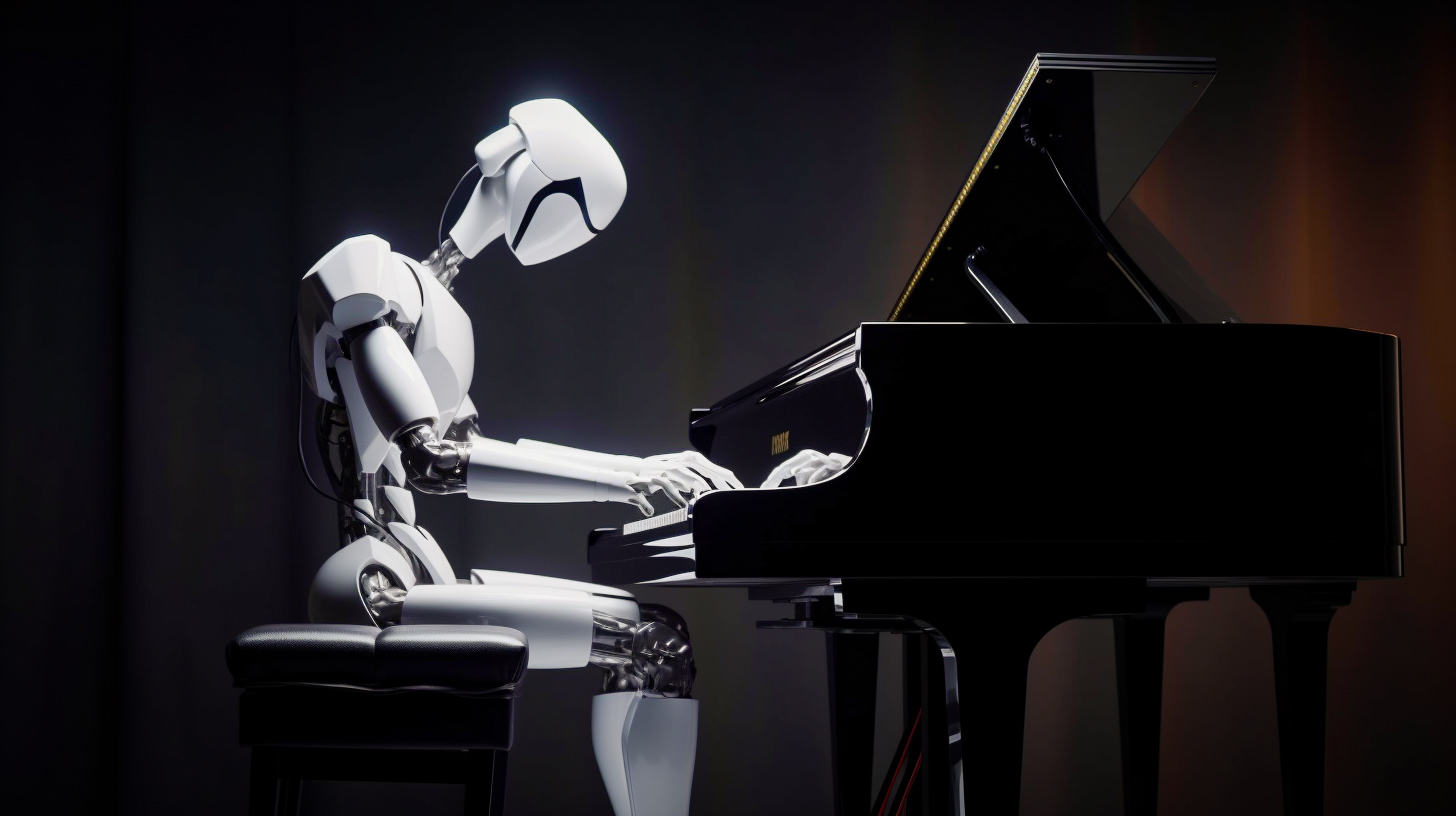 Although AI can help creative professionals be more productive, it can't take their place.
Although AI can help creative professionals be more productive, it can't take their place.
3. Skilled Tradespeople
Jobs that need special skills, like plumbing, electrical work, and carpentry, will still be needed in the future. Machines can't easily do these jobs. They need people who know how to use their hands and have specific knowledge. Plus, we'll need more buildings and other infrastructure as the population grows, so there will be even more jobs in these fields.
4. Educators
As jobs keep changing quickly, it's important to keep learning throughout your whole life. That means there will be more need for teachers and other education workers. Machines won't be able to take over these jobs. They need people who can connect with others, be aware of emotions, and adjust to new situations. Also, new technologies in education will make more jobs for teachers and educators who know how to use them.
5. Customer Service Representatives
Some parts of customer service, like chatbots, are done by machines. But we still need real people to do other parts. People in these jobs have to be kind, good at fixing problems, and able to talk to customers well. Machines can't do all these things as well as people can, so we'll still need humans to do customer service jobs.
 While technology has made tasks like paying easier, we still value human interaction with kind and compassionate individuals.
While technology has made tasks like paying easier, we still value human interaction with kind and compassionate individuals.
Wrap up
In short, automation and AI are changing the job market a lot. They can create new jobs and make things more efficient, but they can also be risky for people who work in the old ways of doing things. To deal with these changes, both workers and businesses need to adapt and learn new skills by getting more education and training.






